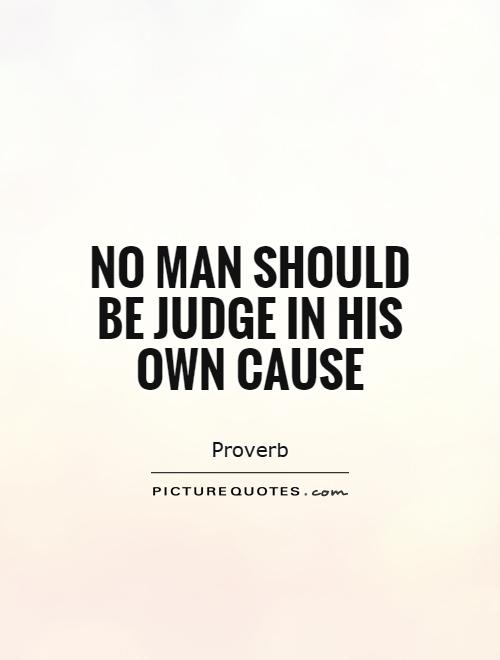No man should be judge in his own cause

No man should be judge in his own cause
The proverb "No man should be judge in his own cause" is a timeless reminder of the importance of impartiality and fairness in decision-making. It emphasizes the inherent bias that individuals may have when it comes to matters that directly affect them, and the potential for this bias to cloud their judgment. This proverb serves as a cautionary tale, warning against the dangers of allowing personal interests to influence the outcome of a dispute or conflict.The concept of not being a judge in one's own cause can be traced back to ancient times, with roots in Roman law and principles of natural justice. It is a fundamental principle of legal systems around the world, reflecting the belief that justice can only be served when decisions are made by impartial and objective parties. This principle is enshrined in the legal maxim "nemo debet esse judex in propria causa," which translates to "no one should be a judge in his own cause."
The wisdom of this proverb is evident in various aspects of life, not just in the realm of law. In personal relationships, for example, conflicts can arise when individuals are unable to separate their emotions and biases from the situation at hand. By seeking the perspective of a neutral third party, such as a mediator or counselor, parties can gain a more objective view of the issues at hand and work towards a fair resolution.












 Friendship Quotes
Friendship Quotes Love Quotes
Love Quotes Life Quotes
Life Quotes Funny Quotes
Funny Quotes Motivational Quotes
Motivational Quotes Inspirational Quotes
Inspirational Quotes